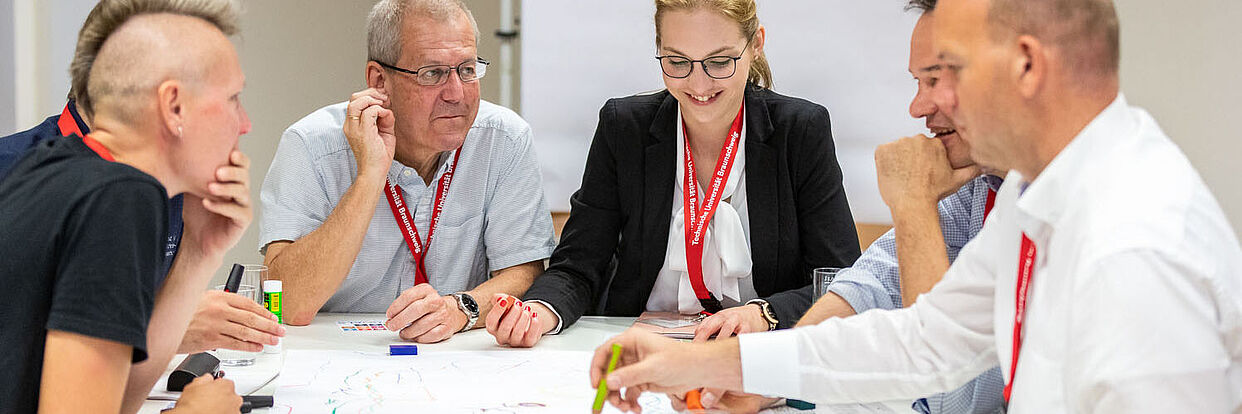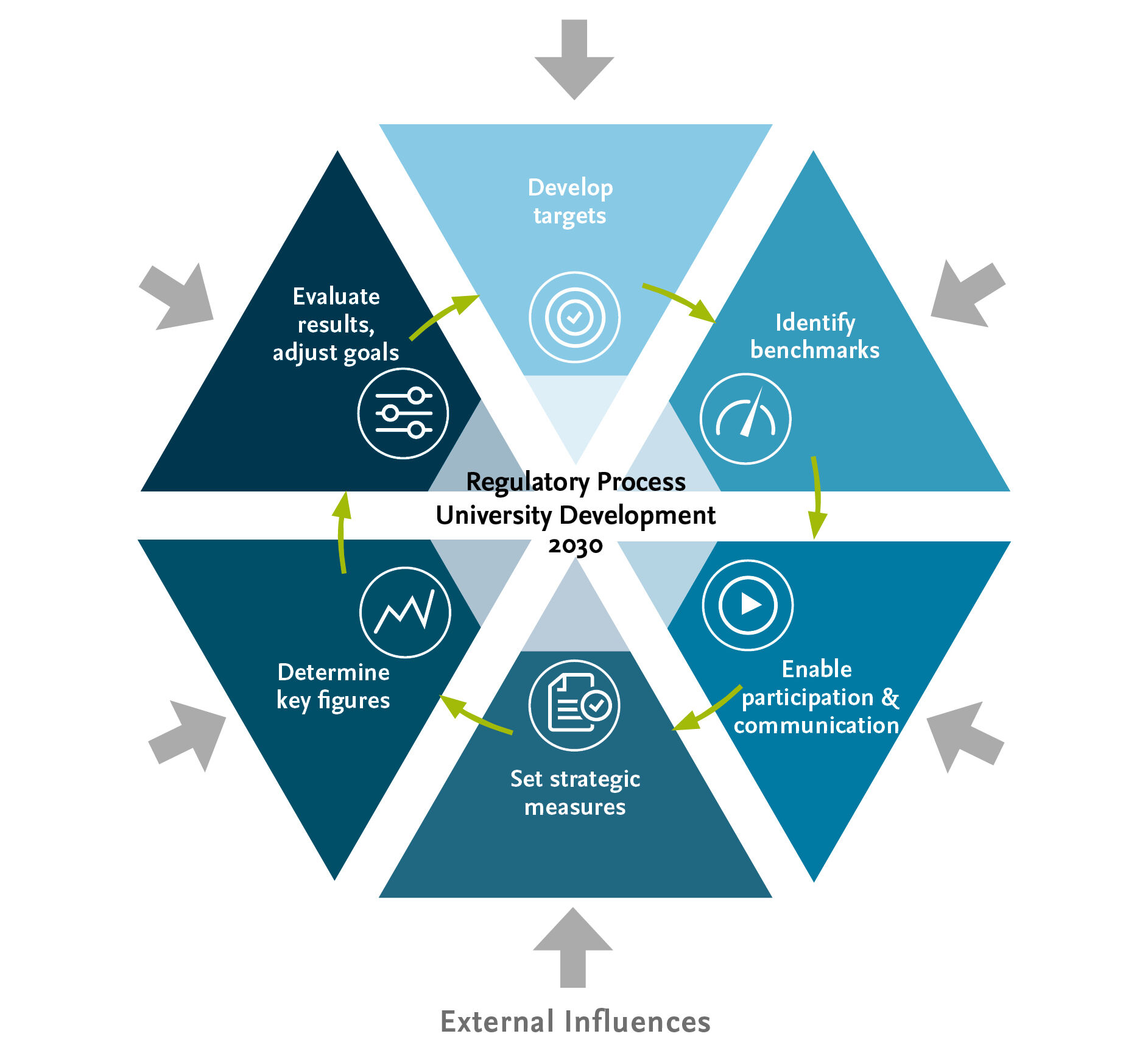
Universities are both places where knowledge is imparted and where knowledge is created - at the same time as they are in constant exchange with other research institutions, with businesses, with developments in the region in which they are based and with the world at large. In addition, they are subject to external influences that require constant adaptation and even reorientation. Just how diverse these influences can be can be seen, among other things, in the strategic overarching themes that will guide our university in the coming years.
Angela Ittel, President (University Development Concept, 2024)
Our university aims to identify emerging changes at an early stage and seize the opportunities they present. For this reason, we have established a circular development process for TU Braunschweig with the University Development 2030 Initiative'. The individual faculties and the presidium now continuously follow an annual development process consisting of six steps. At the end of each cycle, annual development discussions are held - the first of which took place in November 2022.

Starting point is the University Development Concept (Hochschulentwicklungskonzept/HEK): Are the objectives, priorities and concepts still appropriate? Or do they need to be adapted to new conditions?
Step 1: We review and adjust the objectives every year.
What actions result from the defined objectives? The faculties and the Executive Board develop the next steps with the relevant groups.
Step 4: We define measurable strategic actions.
What are the relevant benchmarks against which we want to orient ourselves? We want to learn from each other and set challenging objectives.
Step 2: Benchmarks give us direction and help us set challenging objectives.
How do the agreed key indicators develop during the year? Where do we need to make adjustments?
Step 5: We find an appropriate rhythm for reviewing the key indicators.
Who do we involve in the relevant adjustments and refocusing? Who are the relevant groups involved?
Step 3: Annual development meetings coordinate between the Executive Board, faculties and supporting institutions.
How effective have the agreed actions been? What results can we show at the end of the cycle?
Step 6: We evaluate and propose new objectives for the development of the faculties and the university.